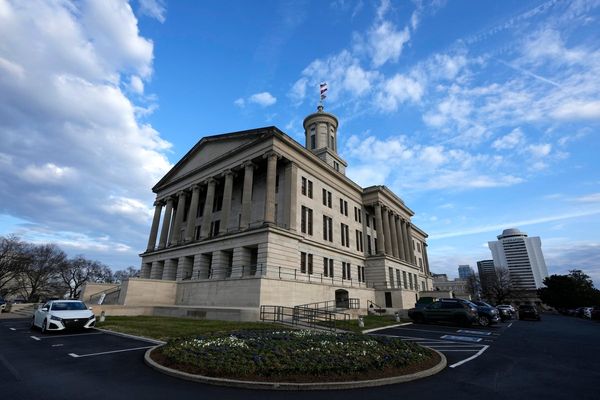The ACT government has turned down an offer by defence company Northrop Grumman to send a public school student and teacher from Canberra on a "life-changing" six-day course at America's "Space Camp".
The internal advice from public servants was that attending could "provide life-changing opportunities and networks that they would be unable to achieve in the ACT".
But after two months of back-and-forth emails within the ACT government, the offer was turned down because accepting it might be "controversial".
The decision marks a change of attitude by the ACT government towards defence companies, some of which have substantial offices in Canberra (including Raytheon, Lockheed Martin and Northrop Grumman).
Its current position is it would still "engage" with defence companies "but the primary focus for the territory government is in space, cyber security, advanced technology, renewables and international education".
This is a change from 2017 when Chief Minister Andrew Barr went to the United States and met executives of two of the world's biggest weapons manufacturers, Northrop Grumman and Lockheed Martin. He said the aim was "to achieve our goal of growing and sustaining the defence industry in the Canberra region".
The sponsor of the Canberra student and teacher trip, Northrop Grumman, makes drones, including for the Australian Defence Force. The Space Camp the student and teacher would have attended was not about military applications but civil space exploration.
The student and teacher would have met astronauts and learnt about moon landings and space missions. The Space Camp's promotion material called it "the ultimate educational experience that illuminates real-world applications of science, technology, engineering and mathematics".

The internal ACT government documents revealed public servants appreciated the benefits of the event for the public school student and teacher but were wary of its PR implications.
Public school students from the ACT have gone to the Space Camp in previous years. Canberra private school students have also gone to it, as have public school students from other states.
The internal ACT government documents obtained under freedom of information law revealed the thinking behind this year's rejection.
The briefing papers said the minister had been lobbied. "There has been correspondence to the minister regarding concerns about relationships with such organisations associated with defence, specifically weapons technologies," they said.
It's not known who put the pressure on the minister, nor is it clear whether the minister referred to was Education Minister Yvette Berry or the Chief Minister, both Labor. But the Greens have been vociferous in their opposition to the arms industry.
"Not participating in the event may preclude ACT public school students accessing events and opportunities that are available to both public and private school students in other states and territories, and private school students in the ACT," the papers said.
But the down-side was to the "reputational impact of agreeing to sponsorship that does not align with the Directorate's Corporate Sponsorship Policy or values".
"Partnership with organisations such as Northrop Grumman (and other defence technology organisations) are likely to be perceived by the Canberra community as a controversial issues (sic)."
In response to recent questions from The Canberra Times, the ACT government said: "Consistent with our responsible investment policies, we are not pursuing economic development opportunities or involvement in the production of whole weapon systems, delivery platforms or components of cluster munitions; production of whole weapon systems or components of landmines and biological or chemical weapons; production of depleted uranium weapons, blinding laser weapons, incendiary weapons, or weapons with non-detectable fragments; and manufacture of nuclear weapons including warheads and missiles, nuclear components and delivery platforms, or that are involved in the production and/or storage of fissile materials used in/for nuclear weapons, or that provide auxiliary services related to nuclear weapons, such as repair and maintenance."







